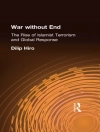Tar sands “development” comes with an enormous environmental and human cost. In the tar sands of Alberta, the oil industry is using vast quantities of water and natural gas to produce synthetic crude oil, creating drastically high levels of greenhouse gas emissions and air and water pollution. But tar sands opponents—fighting a powerful international industry—are likened to terrorists, government environmental scientists are muzzled, and public hearings are concealed and rushed.
Yet, despite the formidable political and economic power behind the tar sands, many opponents are actively building international networks of resistance, challenging pipeline plans while resisting threats to Indigenous sovereignty and democratic participation. Including leading voices involved in the struggle against the tar sands, A Line in the Tar Sands offers a critical analysis of the impact of the tar sands and the challenges opponents face in their efforts to organize effective resistance.
Contributors include: Greg Albo, Sâkihitowin Awâsis, Toban Black, Rae Breaux, Jeremy Brecher, Linda Capato, Jesse Cardinal, Angela V. Carter, Emily Coats, Stephen D’Arcy, Yves Engler, Cherri Foytlin, Sonia Grant, Harjap Grewal, Randolph Haluza-De Lay, Ryan Katz-Rosene, Naomi Klein, Melina Laboucan-Massimo, Winona La Duke, Crystal Lameman, Christine Leclerc, Kerry Lemon, Matt Leonard, Martin Lukacs, Tyler Mc Creary, Bill Mc Kibben, Yudith Nieto, Joshua Kahn Russell, Macdonald Stainsby, Clayton Thomas-Muller, Brian Tokar, Dave Vasey, Harsha Walia, Tony Weis, Rex Weyler, Will Wooten, Jess Worth, and Lilian Yap.
The editors’ proceeds from this book will be donated to frontline grassroots environmental justice groups and campaigns.
Über den Autor
Bill Mc Kibben is the author of a dozen books about the environment, beginning with The End of Nature in 1989, which is regarded as the first book on climate change for a general audience. He is a founder of the grassroots climate campaign 350.org, which has coordinated fifteen thousand rallies in 189 countries since 2009. Time magazine called him “the planet’s best green journalist, ” and the Boston Globe said in 2010 that he was “probably the country’s most important environmentalist.”












